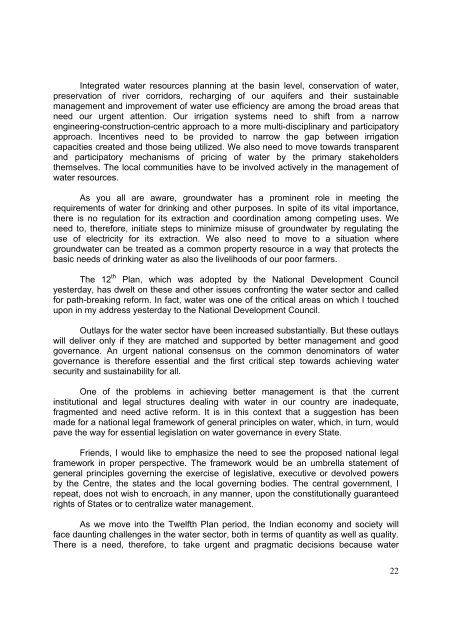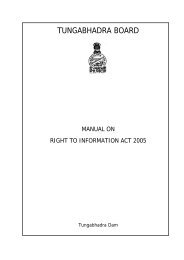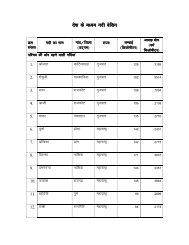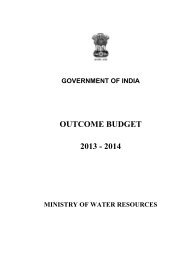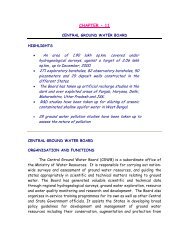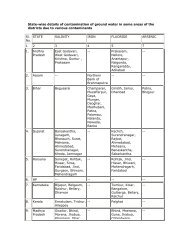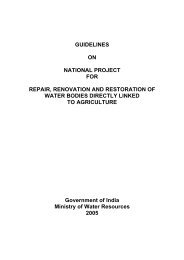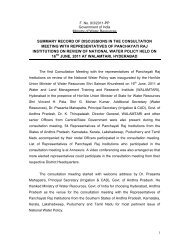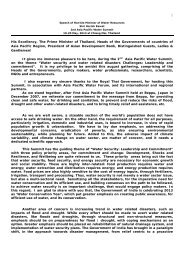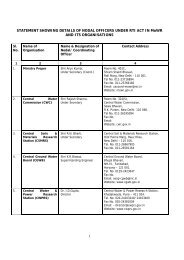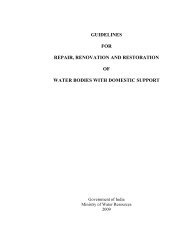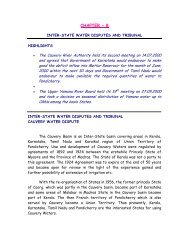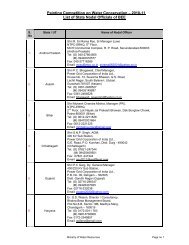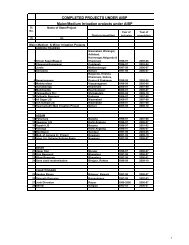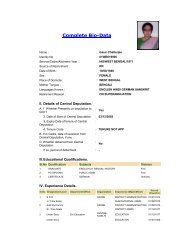Summary Record of Proceedings of National Water Resources ...
Summary Record of Proceedings of National Water Resources ...
Summary Record of Proceedings of National Water Resources ...
Create successful ePaper yourself
Turn your PDF publications into a flip-book with our unique Google optimized e-Paper software.
Integrated water resources planning at the basin level, conservation <strong>of</strong> water,preservation <strong>of</strong> river corridors, recharging <strong>of</strong> our aquifers and their sustainablemanagement and improvement <strong>of</strong> water use efficiency are among the broad areas thatneed our urgent attention. Our irrigation systems need to shift from a narrowengineering-construction-centric approach to a more multi-disciplinary and participatoryapproach. Incentives need to be provided to narrow the gap between irrigationcapacities created and those being utilized. We also need to move towards transparentand participatory mechanisms <strong>of</strong> pricing <strong>of</strong> water by the primary stakeholdersthemselves. The local communities have to be involved actively in the management <strong>of</strong>water resources.As you all are aware, groundwater has a prominent role in meeting therequirements <strong>of</strong> water for drinking and other purposes. In spite <strong>of</strong> its vital importance,there is no regulation for its extraction and coordination among competing uses. Weneed to, therefore, initiate steps to minimize misuse <strong>of</strong> groundwater by regulating theuse <strong>of</strong> electricity for its extraction. We also need to move to a situation wheregroundwater can be treated as a common property resource in a way that protects thebasic needs <strong>of</strong> drinking water as also the livelihoods <strong>of</strong> our poor farmers.The 12 th Plan, which was adopted by the <strong>National</strong> Development Councilyesterday, has dwelt on these and other issues confronting the water sector and calledfor path-breaking reform. In fact, water was one <strong>of</strong> the critical areas on which I touchedupon in my address yesterday to the <strong>National</strong> Development Council.Outlays for the water sector have been increased substantially. But these outlayswill deliver only if they are matched and supported by better management and goodgovernance. An urgent national consensus on the common denominators <strong>of</strong> watergovernance is therefore essential and the first critical step towards achieving watersecurity and sustainability for all.One <strong>of</strong> the problems in achieving better management is that the currentinstitutional and legal structures dealing with water in our country are inadequate,fragmented and need active reform. It is in this context that a suggestion has beenmade for a national legal framework <strong>of</strong> general principles on water, which, in turn, wouldpave the way for essential legislation on water governance in every State.Friends, I would like to emphasize the need to see the proposed national legalframework in proper perspective. The framework would be an umbrella statement <strong>of</strong>general principles governing the exercise <strong>of</strong> legislative, executive or devolved powersby the Centre, the states and the local governing bodies. The central government, Irepeat, does not wish to encroach, in any manner, upon the constitutionally guaranteedrights <strong>of</strong> States or to centralize water management.As we move into the Twelfth Plan period, the Indian economy and society willface daunting challenges in the water sector, both in terms <strong>of</strong> quantity as well as quality.There is a need, therefore, to take urgent and pragmatic decisions because water22


